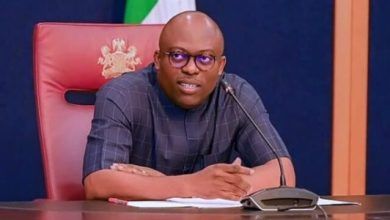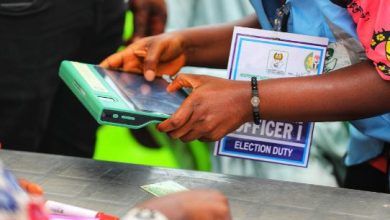
Farouk Aliyu, a senior figure in the All Progressives Congress (APC), has openly opposed suggestions that Nigeria’s ruling party is working toward establishing a one-party state, a stance he says does not align with the party’s democratic principles.
Aliyu, a former member of the House of Representatives, spoke in response to recent remarks by APC National Chairman Abdullahi Ganduje, who appeared to support the concept of a one-party system and hinted that the APC was poised to fill that role.
In an interview with Arise News, Aliyu clarified: “The APC does not subscribe to the idea of a one-party state. What Ganduje said is his personal opinion and should not be mistaken as the official position of the party.”
Aliyu emphasized that political plurality remains essential for a healthy democracy and warned against any drift toward political dominance by a single party.
“Democracy thrives on competition and choice. Concentrating power in one political party is neither desirable nor beneficial for Nigeria,” he said.
Amid ongoing waves of defections—particularly from the opposition Peoples Democratic Party (PDP)—Aliyu dismissed speculation that the APC is deliberately engineering these shifts to weaken its rivals. He maintained that individuals have joined the party of their own volition.
“If people from other parties decide to join the APC, we won’t stop them—but that doesn’t mean we are orchestrating it. Everyone is free to associate politically,” he noted.
However, Aliyu cautioned that unchecked absorption of opposition figures could harm democratic diversity.
“Having everyone in one party is not necessarily a good thing. It is the electorate who will ultimately decide who governs, no matter how many people join APC,” he stated.
Turning to the recent defection of former Kaduna governor Nasir El-Rufai to the Social Democratic Party (SDP), Aliyu did not mince words, describing the move as driven by “personal disappointment.”
“He’s upset because he didn’t get a ministerial appointment. That’s the real reason behind his sudden criticism of the party and the president,” Aliyu alleged.
“If El-Rufai had been made a minister, I doubt he would be expressing these grievances. He’s entitled to his views, but the context is important,” he added.
Aliyu also commented on reports of alliance talks between key opposition figures, including former Vice President Atiku Abubakar and former Labour Party presidential candidate Peter Obi. He acknowledged the right of political opponents to strategize but expressed confidence in APC’s resilience.
“We respect their right to form coalitions. It’s part of the democratic process. But we’re not idle—we’re working quietly to ensure we remain politically dominant,” he said.
In concluding, Aliyu reaffirmed the APC’s commitment to a competitive, multiparty democracy—despite the influx of new members—and stressed that the party should not be judged by isolated opinions.





